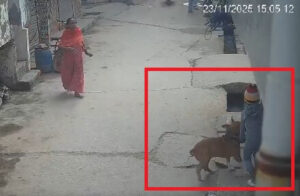Half of India’s manual scavengers in UP: Survey

Ahmedabad : Uttar Pradesh has more than half the country’s manual scavengers, an inhuman practice carried on for centuries, according to the latest survey published by the Union Ministry of Social Justice and Empowerment.
According to the manual scavengers survey 2018 report, released in June, the largest populated state in the country has 28,796 manual scavengers of the total 53,236 manual scavengers registered through the registration camps held for the survey.
However, these figures are only from 12 states, out of the 18 where the survey is being conducted. The figures of the rest six states are being sought.
Moreover, these figures obtained for the first phase of the survey are only from 121 select districts out of the 600 districts in the country. The survey found Madhya Pradesh with 8,016 registered manual scavengers and Rajasthan with 6,643.
The survey states that Gujarat has only 146 registered scavengers, a much smaller number given that far denigrated figure, where even the deaths of manhole workers are far higher. Men entering sewerage pipelines have to manually clean the clogging of sewer lines, a work equally inhumane as manual scavenging.
The survey was presented at a three-day national seminar with the theme ‘Sociology of Sanitation’ inspired by Sulabh International Social Services Organisation, a NGO working for upliftment of manual scavengers and the underprivileged classes, led by Padmashree awardee Bindeshwar Pathak.
Sulab has pioneered revolutionary work of setting up public toilets across the country and eradicating the inhumane practice of manually removing human excreta.
“Time will bring that change which is needed in the mindset of the people. The problem of human waste removal was a dire one and the solution lay in Mahatma Gandhi’s thoughts, which was construction of infrastructure through raw materials obtained within five kilometre radius of the construction. We came out with the novel and unique idea of two-pit latrines, which abolished the need for manual removal,” said Pathak, founder of Sulab International.
“There is no other better technology than this method and now even other countries are replicating it. The most advanced countries like the US have also showed interest in replicating the two-pit latrines in their country,”
Pathak was speaking at the seminar jointly organised by the M.K. University, Bhavnagar, the Gujarat University, Ahmedabad, and Sulabh International.
Published on: June 27, 2018 at 13:51 IST
IANS





